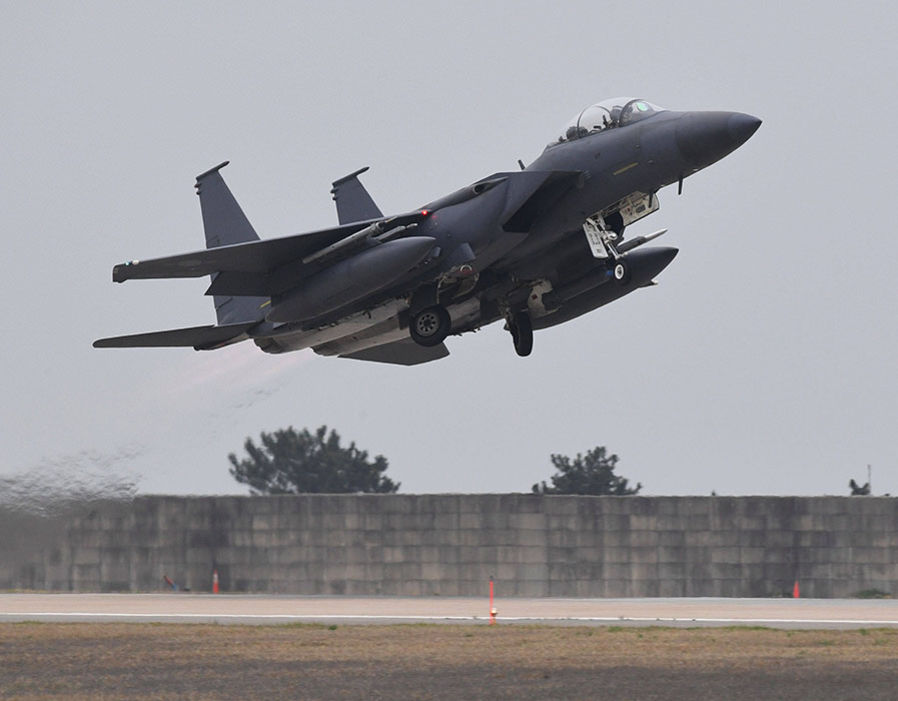Chinese President Xi Jinping on Monday urged restraint during a call with US President Donald Trump, as a nervous South Korea and Japan sought to join drills with an American supercarrier headed for Korean waters.
“(China) hopes that the relevant parties can maintain restraint and avoid actions that would increase tensions in the Korean Peninsula,” Xi said, according to a statement from the foreign ministry.
“The only way to realize denuclearization in the Korean Peninsula and quickly resolve North Korea’s nuclear problem is for each relevant party to fulfil its duties.”
It was the second phone call between the two leaders since their summit at Trump’s luxury resort in Florida early this month.
Reclusive North Korea said at the weekend it was ready to sink the US aircraft carrier, the USS Carl Vinson, which Trump had ordered to waters off the Korean peninsula as a warning to the nuclear-armed North.
Japan said on Sunday it had sent two Japanese destroyers to join the carrier group for drills, and South Korea said it was also in talks about holding joint naval exercises.
China is increasingly worried the situation may spin out of control, leading to war and a chaotic collapse of its isolated and poverty-struck neighbor.
Before his latest conversation with Xi, Trump called Japanese Prime Minister Shinzo Abe, speaking to him about the joint drill between the Carl Vinson and Japan’s Maritime Self-Defense Force.
“I told him that we highly appraise US words and actions that show all options are on the table,” Abe told reporters following the call.
“We completely agreed that we strongly demand restraint by North Korea, which has repeatedly taken dangerous provocative actions.”
A Japanese official said the phone call between Trump and Abe was not prompted by any specific change in the situation.
The US government has not specified where the carrier strike group is, but US Vice President Mike Pence said on
Saturday it would arrive “within days”.
Tensions have risen sharply in recent months, with Washington and its allies fearing Pyongyang could conduct
another nuclear missile test or launch more ballistic missiles in defiance of United Nations sanctions.
